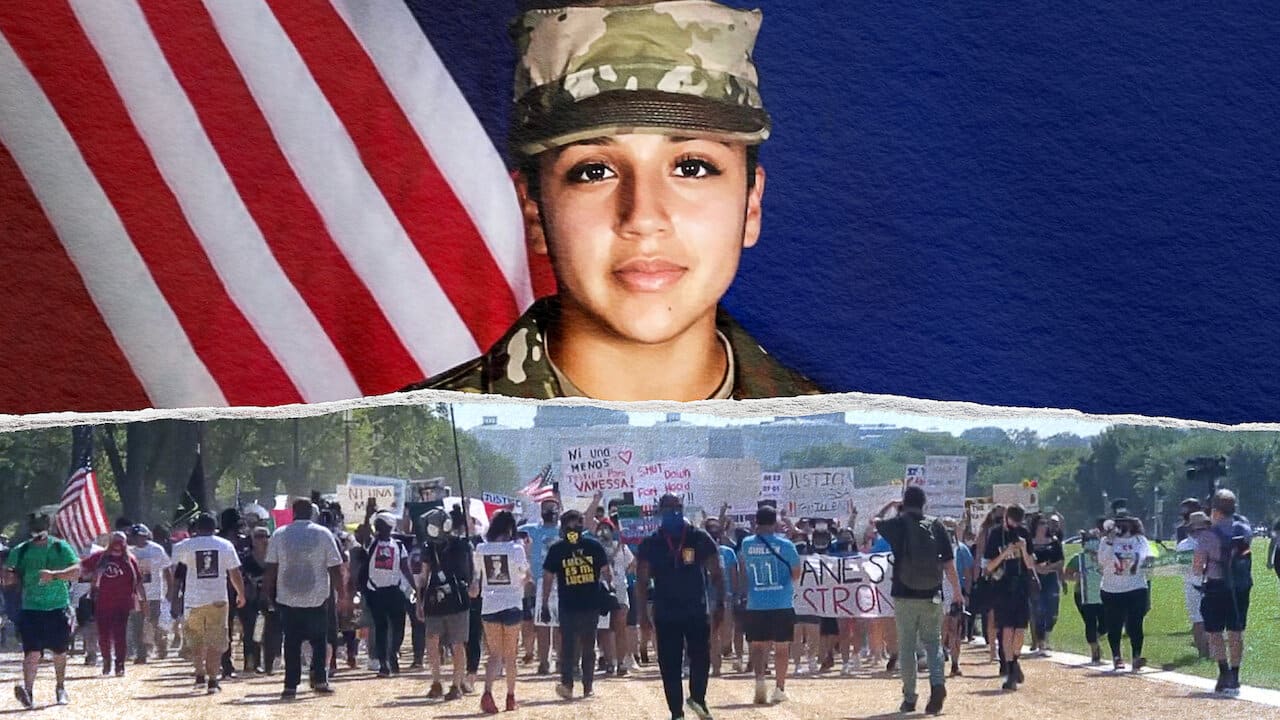As a Navy veteran, I know firsthand what it’s like to serve in a system that doesn’t always see you, protect you, or uplift you. I’ve seen how Latinas in the military have to work twice as hard to get half the recognition. So when I saw that Trump fired Admiral Linda Fagan, the first woman to ever lead a branch of the U.S. military, I knew exactly what that meant.
This wasn’t just a political move. This was a message. And if we don’t take that message seriously, we’re in trouble.
The U.S. military has never been an easy place for women, especially Latinas. We’ve been here since World War II, shoved into support roles, denied leadership opportunities, and left out of the history books. The military loves to use our labor – but when it comes to promotions, recognition, or safety? We’re an afterthought.
We know the stats: Latinas are overrepresented in lower ranks and underrepresented in leadership. We’re more likely to face sexual harassment and discrimination (unfortunately, they removed the study on the DOD website delineating this!). We’re less likely to be promoted compared to our white male counterparts. And now? With federal DEI programs being gutted, the little progress we’ve made is about to disappear.
Admiral Linda Fagan wasn’t just any officer – she was the highest-ranking woman in the entire U.S. military. A four-star admiral. A symbol that, maybe, just maybe, things were starting to change. Trump fired her for no reason. No scandal. No controversy. Just an unchecked flex of power to remind us that women, no matter how high we climb, are never safe in a system designed for men.
For Latinas in uniform, this isn’t just a headline. It’s a warning shot. If they can erase a woman with four stars on her uniform, what do you think they’ll do to the Latina petty officer who reports harassment? The Latina lieutenant fighting for a leadership position? The Latina soldier asking for the same promotions and pay as her white male colleagues? This isn’t hypothetical. It’s happening right now.
DEI programs were never perfect, but they gave us a fighting chance. They opened doors for Latinas to enter military academies, rise through the ranks, and have a seat at the table. Now? Those doors are slamming shut. Without DEI, there will be fewer Latina officers because mentorship and leadership pipelines are disappearing. Harassment and discrimination cases will be harder to report and easier to bury. The old boys’ club will tighten its grip on power, making sure we stay in the background.
For decades, Hollywood and the media have sold us a very specific vision of the Latina soldier – loyal, hardworking, dedicated. Shows like NCIS and Army Wives make it seem like the military is a welcoming space for women of color. But let’s be honest – where’s the show about the Latina soldier passed over for promotion? Where’s the documentary about the Latina officer retaliated against for reporting harassment? Where’s the movie about the Latinas who fought for this country but were never protected by it?
If you want a glimpse of what women in the military actually endure, check out the documentary The Invisible War (2012), which exposes the epidemic of sexual assault in the armed forces and the military’s failure to protect its own. While the film doesn’t focus specifically on Latinas, it makes one thing clear: The system wasn’t built to protect us.
For a more Latino-centered perspective, the Latina directed and produced film, Enemy in the Ranks, a feature-length documentary that follows U.S. Marines veteran and military sexual assault survivor Triste Ordex, who speaks up about military sexual trauma after the murder of Latina Army soldier Vanessa Guillén. And of course, there is Netflix’s I Am Vanessa Guillén, that details her particular case and the systemic injustices that surround it.
We’ve been told over and over that if we just “work hard” and “prove ourselves,” we’ll be treated fairly. But Admiral Fagan did everything right and she still got fired. So where does that leave the rest of us?
If you think this doesn’t affect you because you’re not in the military, think again. The military has always been a testing ground for bigger policies. Whatever happens there trickles out into society. Rolling back DEI in the armed forces means rolling back diversity in government, in leadership, in education, in Hollywood.
Latinas have always fought for this country. Now it’s time to fight for ourselves and demand that our stories, our struggles, and our victories get the spotlight they deserve.
The question is: Who’s listening?

